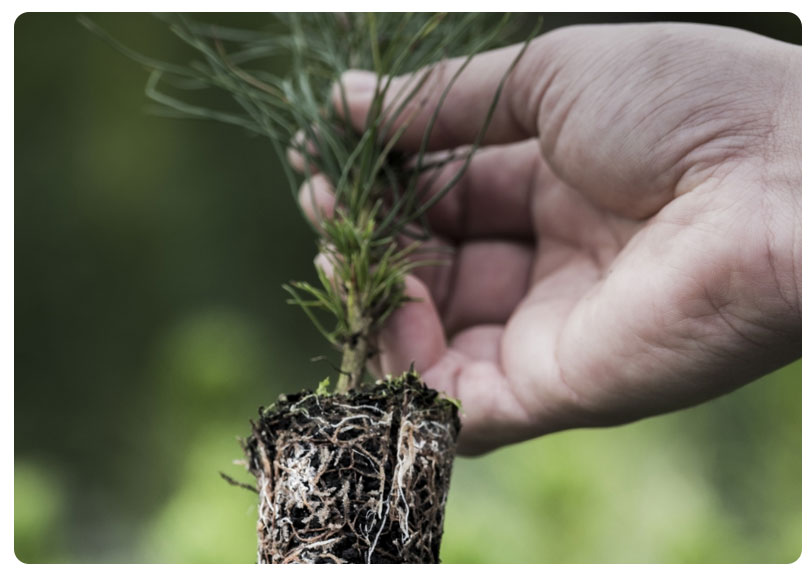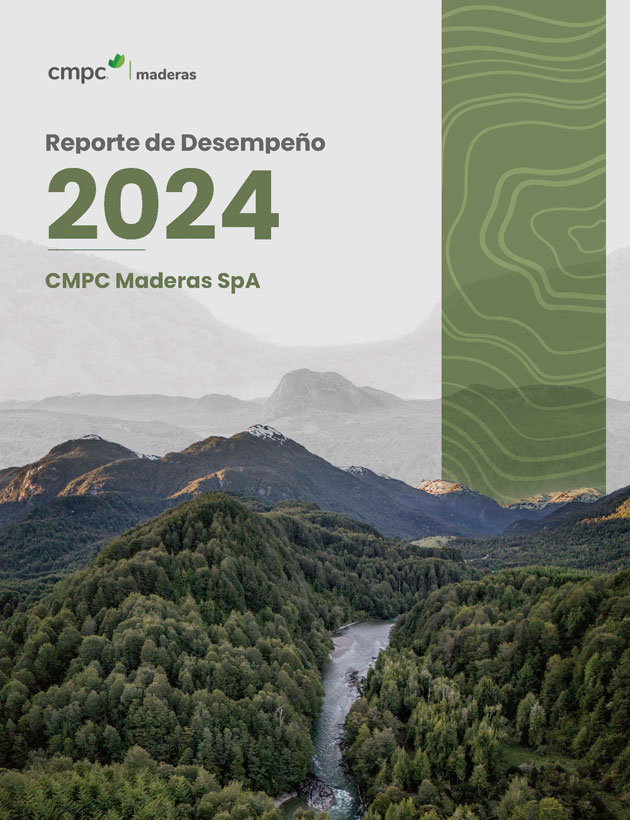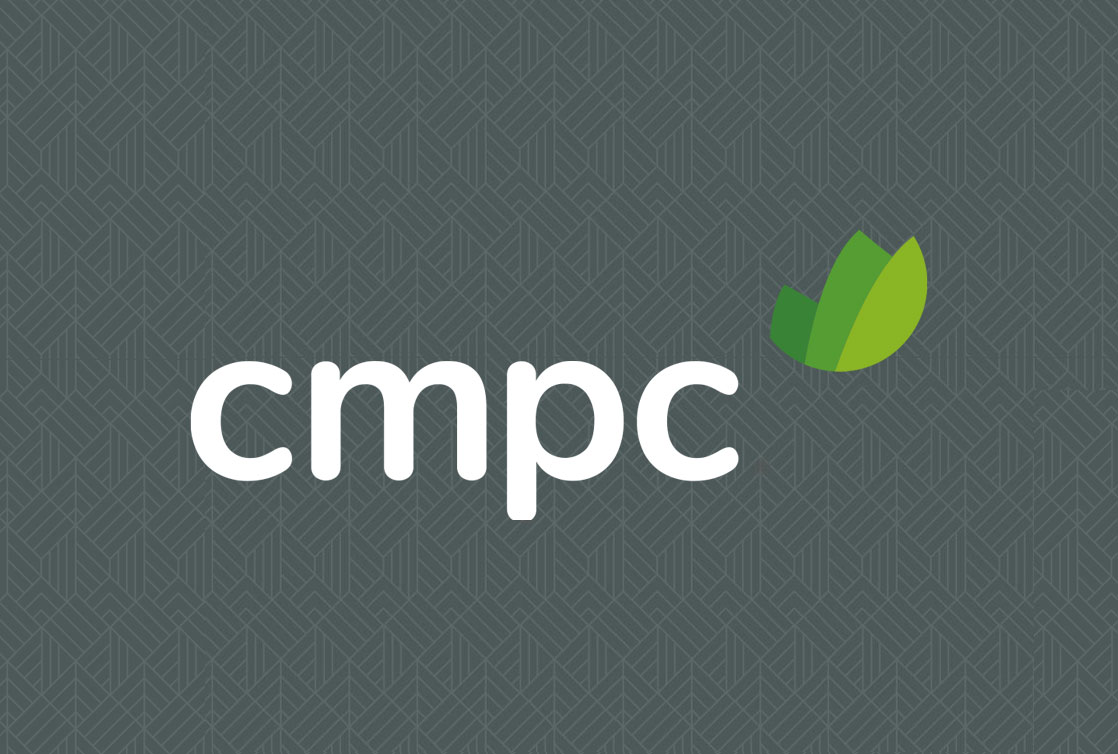El año 2015, los países del mundo adoptaron la agenda 2030 para el Desarrollo Sostenible y sus 17 objetivos de desarrollo, que reúnen los esfuerzos de los países para lograr un mundo sostenible.
Los nuevos objetivos son parte de una agenda de desarrollo ambiciosa, audaz y sostenible que se centra en los tres elementos interconectados del desarrollo sostenible: crecimiento económico, inclusión social y protección ambiental. Para alcanzar estas metas, todo el mundo tiene que hacer su parte: los gobiernos, el sector privado, la sociedad civil.
CMPC ha decidido alinear su estrategia y objetivos de sostenibilidad con los Objetivos de Desarrollo Sostenible (ODS) impulsados por la Organización de Naciones Unidas. Como consecuencia, CMPC trabajará en determinar las áreas prioritarias para avanzar en materia de sostenibilidad, incluyendo metas concretas para el año 2030.
El año 2015, los países del mundo adoptaron la agenda 2030 para el Desarrollo Sostenible y sus 17 objetivos de desarrollo, que reúnen los esfuerzos de los países para lograr un mundo sostenible.
Los nuevos objetivos son parte de una agenda de desarrollo ambiciosa, audaz y sostenible que se centra en los tres elementos interconectados del desarrollo sostenible: crecimiento económico, inclusión social y protección ambiental. Para alcanzar estas metas, todo el mundo tiene que hacer su parte: los gobiernos, el sector privado, la sociedad civil.
CMPC ha decidido alinear su estrategia y objetivos de sostenibilidad con los Objetivos de Desarrollo Sostenible (ODS) impulsados por la Organización de Naciones Unidas. Como consecuencia, CMPC trabajará en determinar las áreas prioritarias para avanzar en materia de sostenibilidad, incluyendo metas concretas para el año 2030.
Agenda de 2030 para el Desarrollo Sostenible

Compromisos de CMPC con el desarrollo sostenible
Proyectos destacados del Bono Verde CMPC
- Procesos de Plantaciones y Replantaciones de Pino Radiata en Chile
- Desarrollo de híbridos de Eucalipto como alternativa al Eucalyptus Globulus, para un mejor rendimiento.
- Compromiso Voluntario de Restauración de Bosque Nativo de Forestal Mininco.
- En el 2018 CMPC, entrego el segundo Bono Verde a través de la filial peruana Protisa, por cerca de US$30 millones.
- El bono se colocó en la Bolsa de Valores de Lima, en Perú, es el primero de este tipo que se emite en aquél país, y el monto será destinado para refinanciar proyectos sustentables en las plantas de Protisa de Cañete y Santa Anita.


Reforestación
Uno de los compromisos permanente de la compañía es la reforestación.
Ello implica prevención, replantación y recuperación de las especies.
En el Vivero Carlos Douglas se producen anualmente cerca de 800 mil plantas nativas y ornamentales de diferentes especies. Para alcanzar dicho número, en él existen diversos procesos y mecanismos tecnológicos de alta calidad, como invernaderos con control ambiental automático, equipos mecanizados para la siembra o una máquina única en Chile y Latinoamérica para el transplante de plantas, proveniente de Holanda y totalmente automática.

Existen dos áreas específicas de alto valor de conservación destinadas a proteger dos especies en peligro; el ruil y la adesmia. Ambas especies son viverizadas para luego ser replantadas en dichas áreas, aumentando así sus poblaciones y evitando que desaparezcan por el cambio climático o acciones humanas.
Adicionalmente, en junio de 2018 CMPC firmó un convenio con el Instituto Forestal (INFOR) para el resguardo genético de la Araucaria. Dicha especie vinculada a la cultura mapuche se encuentra en estado vulnerable y con protección. Es por eso que este convenio tiene como fin crear un banco de almacenamiento de semillas para asegurar la variabilidad genética de la especie a futuro, el que será desarrollado en el vivero. Además, la compañía le entregará a INFOR, dentro de un año y medio, cerca de 30 mil ejemplares de araucaria para ser plantadas en zonas específicas donde se desarrollen de forma propicia.
Existen dos áreas específicas de alto valor de conservación destinadas a proteger dos especies en peligro; el ruil y la adesmia. Ambas especies son viverizadas para luego ser replantadas en dichas áreas, aumentando así sus poblaciones y evitando que desaparezcan por el cambio climático o acciones humanas.
Adicionalmente, en junio de 2018 CMPC firmó un convenio con el Instituto Forestal (INFOR) para el resguardo genético de la Araucaria. Dicha especie vinculada a la cultura mapuche se encuentra en estado vulnerable y con protección. Es por eso que este convenio tiene como fin crear un banco de almacenamiento de semillas para asegurar la variabilidad genética de la especie a futuro, el que será desarrollado en el vivero. Además, la compañía le entregará a INFOR, dentro de un año y medio, cerca de 30 mil ejemplares de araucaria para ser plantadas en zonas específicas donde se desarrollen de forma propicia.
FSC™ es una organización global, sin fines de lucro, dedicada a promover el manejo forestal responsable en todo el mundo. Habilita a empresas y consumidores para que hagan elecciones informadas sobre los productos forestales que compran y crean cambios positivos al aprovechar la fuerza que tiene la dinámica del mercado.
Tener la certificación FSC™ garantiza que CMPC, cuenta con uno de los más altos estándares sociales y ambientales en el mercado y ofrece productos certificados apoyando la gestión responsable de los bosques en el mundo.
Sistema de certificación forestal que busca proporcionar a los consumidores de productos forestales información precisa y verificable sobre el contenido del material certificado.
La Certificación de Cadena de Custodia está destinada a fabricantes, procesadores y comerciantes de productos forestales certificados FSC™. Este tipo de certificación verifica que los productos que se venden con etiqueta FSC™ realmente contienen materiales certificados FSC™ y fuentes controladas.
A través de este mecanismo CMPC, garantiza al consumidor que la madera utilizada en la fabricación de sus productos proviene de un bosque o una plantación certificada FSC™, para cumplir con este objetivo la madera certificada FSC™ es individualizada a lo largo de todos los procesos operativos, y de apoyo de la Empresa (Servicios Tercerizados), manteniéndola separada a través de una segregación tanto física como documental.
La cadena de custodia FSC™ proporciona información sobre el camino recorrido por los productos desde el bosque hasta el consumidor, incluyendo todas aquellas etapas de la transformación, fabricación y distribución en las que el paso al siguiente eslabón de la cadena de suministro implique un cambio de propiedad.
La etiqueta Forest Stewardship council™ en todos los productos CMPC, asegura a los consumidores que la madera utilizada proviene de bosques que han cumplido con estándares rigurosos que buscan contribuir a mantener la biodiversidad, la productividad y los procesos ecológicos del bosque.
- Autodeclaración Referente a la FSC-POL-01-004
- Certificado Cadena de Custodia FSC CMPC Maderas (FSC-C110313)
- Listado Grupo de Productos FSC CMPC Maderas
*Pregunte por nuestros productos con certificación FSC™
La certificación de Cadena de Custodia PEFC, es una norma de certificación a través de la cual se hace seguimiento del material certificado desde que sale del bosque hasta que llega al consumidor final como un producto procesado para su uso.
PEFC es la organización no gubernamental y sin fines de lucro que reconoce y homologa sistemas de certificación forestal en el mundo, con el objetivo asegurar que los bosques sean gestionados de forma responsable, y que su multitud de funciones estén protegidas para generaciones presentes y futuras (PEFC/24-31-500).
Los productos que cuentan con sellos PEFC y que llegan al consumidor final, garantizan que todas las empresas involucradas en su elaboración están certificadas, asegurando la trazabilidad de las materias primas sustentables transferidas de una industria a otra.
Environmental Product Declaration (EPD)
Una EPD es una declaración ambiental certificada elaborada en conformidad con la norma internacional ISO 14025 (Declaraciones Ambientales Tipo III). Se trata de una información ambiental de producto/servicio basada en el análisis de ciclo de vida (ACV) y en otra información relevante, en cumplimiento con la norma.
La Certificación de Cadena de Custodia es el mecanismo a través del cual una Empresa garantiza al consumidor que la madera utilizada en la fabricación de sus productos proviene de un bosque o una plantación certificada FSC™.
Es una norma de certificación a través de la cual se hace seguimiento del material certificado desde que sale del bosque hasta que llega al consumidor final como un producto procesado para su uso.
Declaración cumplimiento cadena de custodia de CMPC Maderas SpA. y CMPC USA, Inc.
Señala que se han comprometido a implementar y mantener las cadenas de custodia y los requisitos de los estándares, como así también el cumplimiento de los valores del FSC™ y PEFC (PEFC/24-31-500) – (PEFC/24-31-7700).
CMPC Maderas se rige por el Sistema de Gestión de Salud y Seguridad, ISO 45.001, que establece los requerimientos para implementar una cultura de Seguridad y Salud en el trabajo. Esta permite el reconocimiento de los riesgos a los que está expuesta cada operación y -sobre todo- las personas que en ella trabajan, así, se protege a todos los colaboradores y contratistas.
Al mismo tiempo, habilita a la compañía para gestionar de forma sistemática y estructurada políticas, estrategias y objetivos de mejora asociados, con el objetivo de prevenir y controlar todos los riesgos que puedan suceder en la zona de trabajo, asegurando que los procesos de mejora continua los minimicen.
CMPC Maderas implementa el Sistema de Gestión de la Energía (SGEn), que es un conjunto de acciones de trabajo que permiten gestionar de manera eficiente el uso de la energía, optimizando el consumo de las plantas y generando ahorros importantes para la empresa. Este trabajo implica estandarizar e identificar claramente la gestión de cada planta, con sus distintos tipos de combustibles y fuentes de energía.
Implementar y mantener Sistemas de Gestión de Energía en las instalaciones productivas, es un objetivo que busca mejorar el desempeño energético de los procesos, a través de sistematizar el análisis energético, estableciendo indicadores y haciendo control y seguimiento de ellos.
Certificados ISO 50.001
- Certificado ISO 50.001 Pta. Bucalemu
- Certificado ISO 50.001 Pta. Coronel
- Certificado ISO 50.001 Pta. Los Ángeles
- Certificado ISO 50.001 Pta. Mulchén
- Certificado ISO 50.001 Pta.Nacimiento
- Certificado ISO 50.001 Pta.Plywood
Sello Excelencia Energética
Declaración principios fundamentales en el trabajo
Para conocer más, revisa el link
Nuestro impacto en cifras: conoce el nuevo Reporte de Desempeño de CMPC Maderas

En CMPC Maderas, estamos comprometidos con la transparencia y la mejora continua. Por eso, hemos publicado nuestro Reporte de Desempeño 2024, donde presentamos los principales avances en sostenibilidad, desempeño ambiental, social y de gobernanza, así como los desafíos y oportunidades que marcan nuestra gestión.
Este reporte refleja el compromiso que guía nuestra Estrategia 2030 y cómo seguimos trabajando por una industria más sostenible, eficiente y cercana a nuestros clientes.









